The process of immigrating to Canada can be challenging.
Fortunately, specific programs help certain individuals gain entry more easily**. Refugees or those with close family members in the country can benefit from Canada's sponsorship programs.**
These programs provide a structured pathway for eligible individuals to enter and settle in Canada. By utilizing these programs, people in critical situations can receive the support needed for a smoother immigration process, enhancing their chances of starting a new life in Canada.
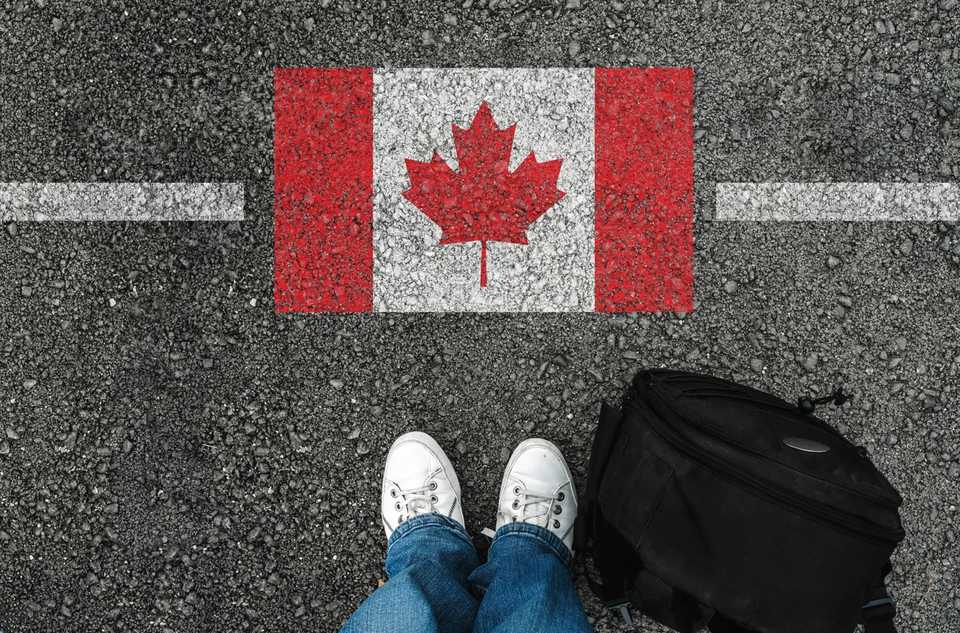
Whether seeking refuge or reuniting with family, understanding, and accessing these sponsorship programs can greatly improve your chances of a successful immigration journey.
| Inthis article, JuriGo details the Private Sponsorship of Refugees Program and the Family Sponsorship Program, explaining why the assistance of an immigration lawyer makes it easier to obtain one of these sponsorships! |
|---|
What are the sponsorship programs in Canada?
There are numerous programs and reasons that allow a foreigner to enter Canada. Among the many accessible programs, sponsorship stands out. These sponsorship programs are designed to assist those in dire need of relocation, providing a structured pathway to enter and settle in Canada with the help of a resident.
In sponsorship programs, the sponsor takes on the responsibility of supporting the sponsored person during their stay in Canada. This support includes financial assistance, help with finding housing, and other forms of guidance to ease their transition into Canadian society.
Two of the most important sponsorship programs are the Private Sponsorship of Refugees Program and the Family Sponsorship Program!
Private Sponsorship of Refugees program
The Private Sponsorship of Refugees program is a unique initiative that allows private groups to sponsor eligible refugees from abroad. This program is designed to provide a lifeline to individuals in dire need of relocation, offering them a structured pathway to enter and settle in Canada with the support of Canadian residents.
Who may be sponsored?
The Private Sponsorship of Refugees program is specifically designed for sponsoring refugees and people in refugee-like situations. Under the Immigration and Refugee Protection Regulations, eligible individuals are grouped into two categories:
- Convention Refugees Abroad
- Country of Asylum Class
Convention Refugees Abroad :
A Convention Refugee is defined as any person who, due to a well-founded fear of persecution based on race, religion, nationality, membership in a particular social group, or political opinion, is outside their country of nationality and is unable or unwilling to return to it.
To qualify, they must meet the following criteria:
- Be outside their country of nationality or habitual residence.
- Be unable or unwilling to avail themselves of the protection of their country due to their fear of persecution.
- Be seeking resettlement in Canada and not have a prospect of another durable solution within a reasonable period.
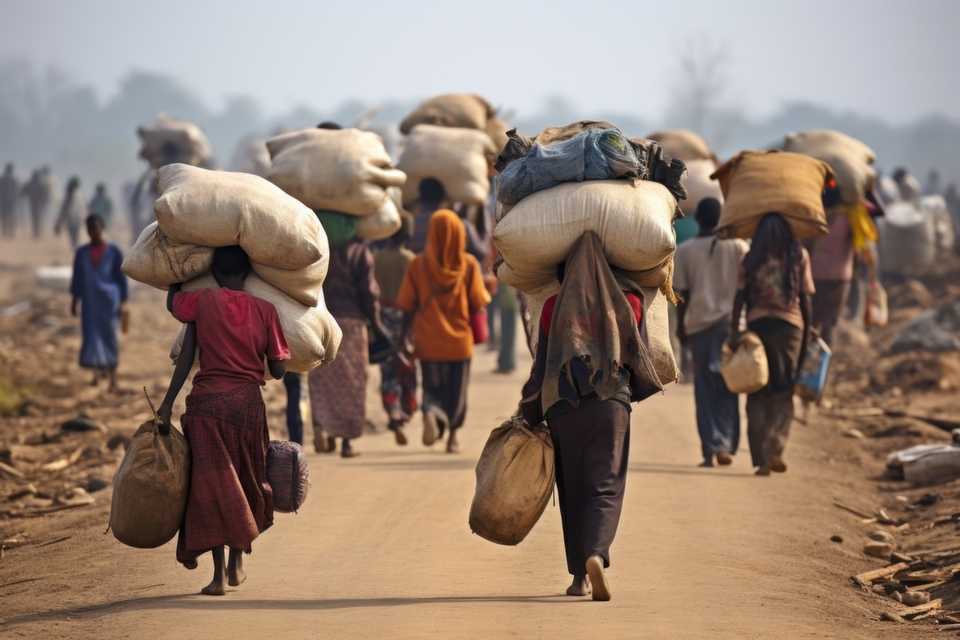
Country of Asylum Class
A member of the Country of Asylum class includes any person who has been seriously and personally affected by civil war, armed conflict, or massive violations of human rights. They must also meet the following criteria:
- Be outside their countries of nationality or habitual residence.
- Does not have a prospect of another durable solution within a reasonable period of time, meaning:
- They cannot return to their countries of nationality or habitual residence.
- They cannot integrate into the country of refuge or the country of first asylum. In other words, they are unable to integrate into the country where they have sought refuge or the first country they entered after leaving their own.
- They do not have any alternative durable solution available to them.
Eligibility assessment :
An officer at an overseas Immigration Refugees and Citizenship Canada (IRCC) office makes the final decision on whether someone meets these definitions and is eligible for resettlement. This decision is based on an interview with the applicant, supporting documentation, and additional information available to the officer, such as country condition updates.
Additionally, refugees must pass medical, security, and admissibility checks. They are also assessed on their ability to establish successfully in Canada, considering factors such as:
- Relatives or a sponsor in Canada
- Ability to speak or learn English or French
- Potential for employment and resourcefulness
| Certain individuals do not qualify for private sponsorship:People already in Canada. People who were previously denied sponsorship, unless their circumstances have since changed, new information has come to light, or Canadian laws pertaining to their case have been amended.People who fled persecution or civil war in the past but are now able to integrate into their current country of residence or return home safely. |
|---|
Who may submit a private sponsorship?
Unfortunately, not everyone can sponsor refugees. Only four categories of people can sponsor under the Private Sponsorship of Refugees Program:
Sponsorship Agreement Holders (SAHs)
SAHs are incorporated organizations that have signed a formal sponsorship agreement with the Immigration, Refugees and Citizenship Canada. These organizations, often religious or humanitarian groups, assume overall responsibility for managing sponsorships. SAHs can also authorize Constituent Groups (CGs) to sponsor under their agreement.
Constituent Groups (CGs)
Constituent Groups are organizations, associations, or corporations located in the community where refugees will settle. They are authorized by SAHs to sponsor refugees, with each SAH establishing its own criteria for recognizing CGs. CGs must have their sponsorship application and settlement plan approved and signed by their SAH to proceed with sponsorship.
Groups of Five (G5)
Groups of Five consist of five or more Canadian citizens or permanent residents who collectively arrange for the sponsorship of a refugee living abroad. These individuals act as guarantors that the necessary support will be provided for the full duration of the sponsorship.
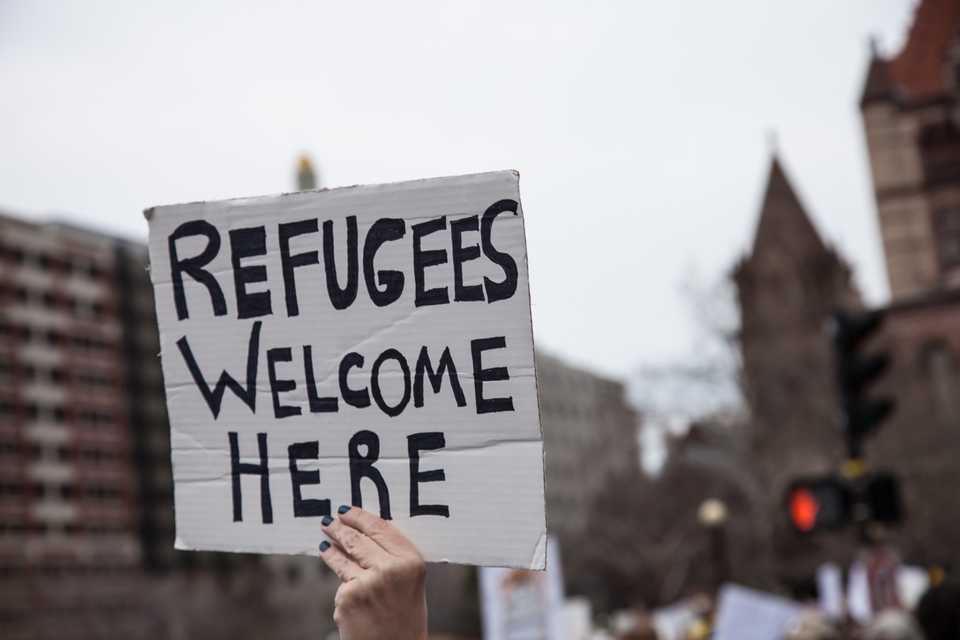
Community Sponsors (CSs)
Community Sponsors are organizations, associations, or corporations based in the community where the refugees are expected to settle. They must have their financial and settlement plans assessed by the Resettlement Operations Centre in Ottawa each time they wish to sponsor refugees.
It's important to note that the province of Quebec has its own refugee sponsorship process, with different criteria and steps than the rest of Canada. Quebec sponsors must refer to the specific guidelines provided by the province.
| Certain individuals and groups do not qualify to participate in the sponsorship of refugees :Those responsible for a Sponsorship Undertaking currently in default.Individuals convicted in Canada of murder or offences listed in Schedule I or II of the Corrections and Conditional Release Act, if less than five years have passed since they completed their sentence under the Criminal Code of Canada.Individuals convicted of similar offences outside Canada, if less than five years have passed since they completed their sentence under foreign law.Those are subject to a removal order.Those involved in revocation proceedings under the Citizenship Act.Individuals detained in any penitentiary, jail, reformatory, or prison.Those who are in default of court-ordered support payments. |
|---|
What are the responsibilities of private sponsors?
As a private sponsor, the commitment involves supporting a refugee or refugees for a sponsorship period, typically lasting up to one year. This support includes:
- Meeting the refugees upon arrival in their new community.
- Finding suitable housing and setting up their new home.
- Providing start-up costs such as furniture, household items, and clothing to help refugees settle into their new household and environment.
- Covering ongoing monthly costs for basic necessities like housing, food, and public transportation.
- Offering social and emotional support to help refugees integrate into Canadian society by providing guidance, friendship, and emotional assistance.
- Informing them about local service providers that can assist them.
- Assisting refugees in learning English or French, finding employment, and accessing other community services.

The Private Sponsorship of Refugees program enables private groups in Canada to provide a stable foundation for refugees, promoting their successful integration into society. By understanding the responsibilities, eligibility criteria, and types of sponsorship, individuals and organizations can contribute effectively to this humanitarian effort.
The commitment of private sponsors not only gives refugees a chance for a better life but also enriches Canadian communities with diverse and resilient new members!
How are refugees selected for sponsorship?
There are different ways to sponsor a refugee, including:
Blended Visa Office-Referred (BVOR) Program:
This program connects sponsors with refugees who have already been screened and interviewed by immigration officials, making them ready to travel sooner.
To help refugees start their new lives in Canada, private sponsors commit to providing six months of financial support and twelve months of social, emotional, and settlement support. The Government of Canada provides the remaining six months of financial support.
This collaborative approach reduces the financial burden on private sponsors and ensures that refugees can be resettled more quickly and efficiently.
Joint Assistance Sponsorship (JAS) Program:
This program is designed to support refugees with special needs, such as those who require more intensive settlement assistance due to medical conditions, trauma, or large family sizes. Only Sponsorship Agreement Holders (SAHs) and their Constituent Groups (CGs) are eligible to sponsor refugees through the JAS program.
Sponsors must provide support for up to 24 months, which includes help with daily living and integration into the community. The Government of Canada offers financial assistance to cover living expenses and healthcare costs for the duration of the sponsorship period.
Sponsoring a known refugee:
Sponsors can choose to sponsor a specific refugee or refugee family with whom they have a personal connection, such as a relative, friend, or acquaintance. This type of sponsorship allows for a more personalized approach to resettlement.
However, the processing time for these cases may be longer, as the refugees must go through the entire application and vetting process from the beginning. Additionally, there will be no financial assistance from the Government of Canada, meaning sponsors are responsible for all costs associated with the refugee's resettlement and integration.
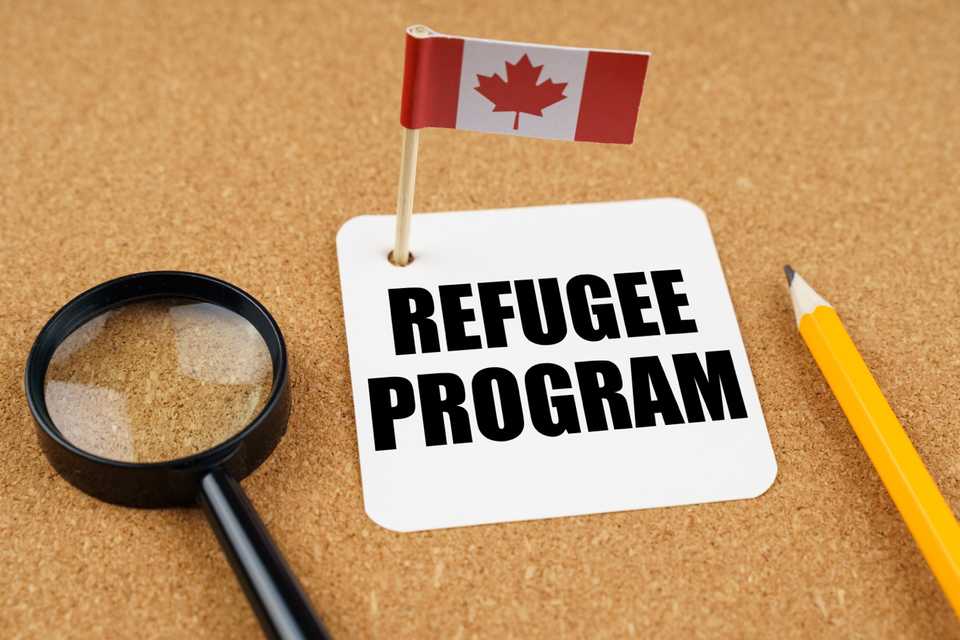
Each of these sponsorship pathways has its unique benefits and challenges, and the selection process depends on various factors, including the urgency of the refugee's situation, the resources available to the sponsor, and the specific needs of the refugees.
What are the responsibilities of immigration lawyers in the Private Sponsorship of Refugees program?
Immigration lawyers play a critical role in the Private Sponsorship of Refugees program in Canada, guiding sponsors and refugees through the complex legal landscape to ensure a smooth and successful resettlement process. Here’s an overview of their key responsibilities and contributions:
| Responsibilities | Explanation |
|---|---|
| Assessing eligibility and compiling documentation for refugees | Immigration lawyers assist refugees in understanding the eligibility criteria for the Private Sponsorship of Refugees program. They help refugees gather and prepare the necessary documents to support their claims, ensuring all required information is accurate and complete. This includes verifying the refugee’s status as a Convention Refugee Abroad or a member of the Country of Asylum Class. |
| Assessing eligibility and compiling documentation for sponsors | Immigration lawyers play a crucial role in helping sponsors gather and prepare the required documents. They clarify sponsorship obligations and eligibility criteria, carefully review sponsor applications, assess financial capabilities, and scrutinize settlement plans to ensure they meet program requirements. |
| Communication with the authorities | Immigration lawyers act as intermediaries between sponsors, refugees, and government agencies. They communicate with IRCC officers and the Resettlement Operations Centre in Ottawa, addressing any concerns or questions that may arise during the application process. Lawyers also keep track of the application status and follow up with the relevant authorities to expedite processing when possible. |
| Navigating sponsorship programs | There are multiple pathways for sponsoring refugees, such as the Blended Visa Office-Referred (BVOR) Program, Joint Assistance Sponsorship (JAS) Program, and sponsoring known refugees.Immigration lawyers help sponsors choose the most appropriate program based on the refugee’s circumstances and the sponsor’s resources. They explain the differences in processing times, financial responsibilities, and support requirements for each program. |
| Legal support and representation | If issues arise during the application process or after the refugee’s arrival in Canada, immigration lawyers offer legal solutions. They assist with appeals, address inadmissibility concerns, and help resolve any legal disputes. Immigration lawyers also provide representation in cases where refugees face challenges related to their status or rights in Canada. |
Family Sponsorship program
Family Sponsorship program empowers Canadian citizens or permanent residents to sponsor a family member's immigration to Canada, facilitating their journey to obtain permanent residency. This sponsorship enables the sponsored individuals to establish themselves in Canada, where they can pursue opportunities to live, study, and work.
What are the eligibility criteria for sponsoring a family member?
To be eligible to sponsor a family member, the sponsor must meet specific criteria outlined by Canadian immigration regulations. Eligible sponsors are required to:
- Be a Canadian citizen or permanent resident.
- Be at least 18 years old.
- Reside in Canada, or intend to return to Canada once their spouse or partner becomes a permanent resident.
- Demonstrate the ability and willingness to financially support their family member for a period of three years.

| Certain individuals do not qualify to sponsor a family member if they:Are currently serving a prison sentence.Have outstanding alimony or child support payments.Have declared bankruptcy and have not been discharged.Have received social assistance for reasons unrelated to a disability.Have defaulted on an immigration loan, or have a history of late or missed payments.Have previously sponsored another relative and did not fulfill the terms of the sponsorship agreement.Have been convicted of a violent crime, an offence against a relative, or a sexual offence, depending on the specifics of the case. |
|---|
There are several types of sponsorship under the family program!
The Family Sponsorship program provides various types of sponsorship opportunities for Canadian citizens or permanent residents looking to sponsor family members to immigrate to Canada, including:
Spouse, Common-law Partner, or Conjugal Partner Sponsorship:
Eligible sponsors can sponsor their spouse, common-law partner, or conjugal partner for Canadian permanent residence. This applies whether the partner is currently living in Canada with a valid temporary visa or residing abroad.
Canada recognizes common-law partnerships, so sponsors and their partners can qualify even if they are not legally married but have cohabited for at least one year.
Parent or Grandparent Sponsorship:
Canada prioritizes family reunification by enabling citizens and permanent residents to sponsor their parents or grandparents through this program. Sponsors must demonstrate they can financially support their family members by meeting the Minimum Necessary Income (MNI) requirements for their household size.
- Child or Other Dependent Sponsorship:
When immigrating to Canada, sponsors can include their children as accompanying dependents on their application for permanent residence. Alternatively, sponsors can choose to sponsor their biological or adopted children under the age of 22 directly for permanent residence.
Eligible children must be unmarried and without children of their own. In certain cases, children over 22 may qualify as dependents if they have a physical or mental condition that prevents them from supporting themselves.
Orphaned Siblings, Nephew, Niece, or Grandchild Sponsorship:
Canadian citizens or permanent residents may sponsor orphaned siblings, nephews, nieces, or grandchildren under specific circumstances. To be eligible, the relative must be unmarried, under 18 years old, and related to the sponsor by blood or adoption.
Family sponsorship in Quebec is different!
Family sponsorship in Quebec operates differently from the rest of Canada due to the federal government granting Quebec more autonomy in immigration matters. The Quebec Ministère de l’Immigration, de la Francisation et de l’Intégration (MIFI) oversees the process, which includes specific regulations for settling sponsored family members within the province.
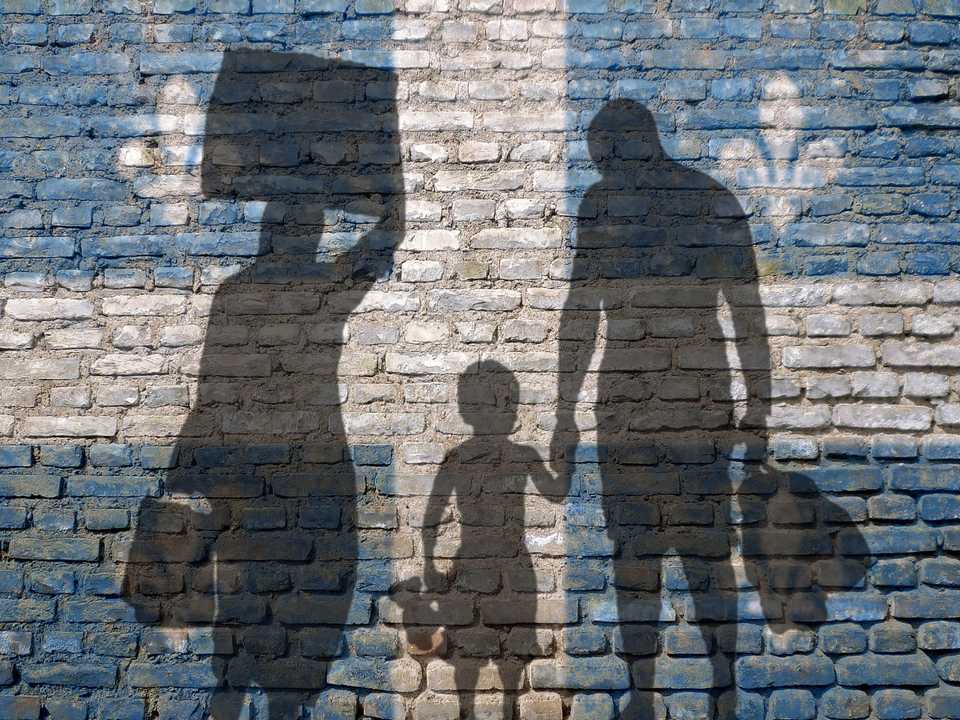
This autonomy allows Quebec to tailor its immigration policies to meet its unique cultural, linguistic, and economic needs. Quebec residents must follow a separate application process that reflects Quebec's priorities and requirements for family sponsorship.
What are the responsibilities of immigration lawyers in the Family Sponsorship program?
Immigration lawyers in Canada play a crucial role in facilitating family reunification through the Family Sponsorship Program. Here's an overview of their responsibilities and contributions, in addition to those already mentioned in the Private Sponsorship of Refugees:
| Responsibilities | Explanation |
|---|---|
| Guiding through the application | They assess eligibility criteria and meticulously compile necessary documentation. This involves preparing applications, ensuring accurate completion of forms, and gathering all required paperwork to support sponsorship applications.Immigration lawyers guide their clients through the intricate process of family sponsorship, providing essential support at every step. They offer expertise in preparing applications, ensuring adherence to legal requirements, and navigating potential challenges that may arise. |
| Preparing for interviews | Immigration lawyers also assist their clients in preparing for interviews that validate familial relationships, a critical step in the sponsorship process. They help clients present compelling evidence and articulate their cases effectively to immigration authorities. |
| Interpreting immigration laws and providing advice | Immigration lawyers interpret complex immigration laws and regulations, anticipating potential challenges that may affect sponsorship applications. They provide tailored advice to optimize the chances of success in family reunification efforts. |
In essence, immigration lawyers serve as advocates for their clients in the Family Sponsorship Program. They offer comprehensive support, navigating legal complexities to achieve the reunification of families in Canada.
JuriGo helps you find a lawyer specialized in immigration law!
If you wish to become a sponsor for refugees or a family member, or if you think you qualify to be sponsored and come to Canada, it is essential to contact an immigration lawyer. Immigration lawyers are indispensable for the Private Sponsorship of Refugees and Family Sponsorship programs due to their expertise in navigating complex legal processes.
Lawyers specialized in immigration law assess eligibility, compile, and submit thorough documentation, and ensure applications meet all requirements. Their knowledge of immigration laws and their ability to anticipate challenges greatly enhance the likelihood of successful sponsorship.
By providing tailored advice and comprehensive support, immigration lawyers facilitate smoother, more efficient processes, ultimately aiding in the reunification of families and the safe resettlement of refugees in Canada.
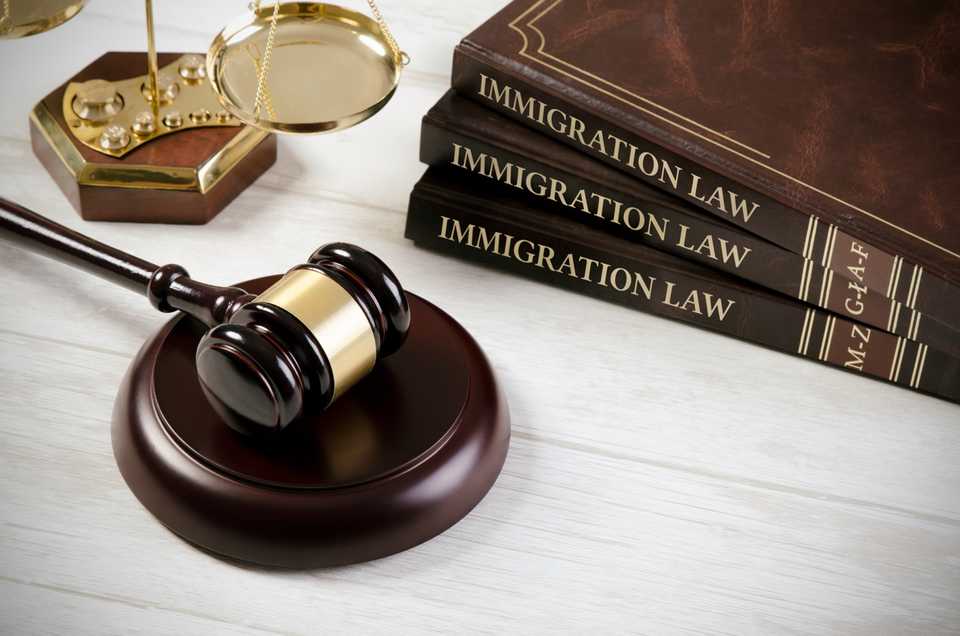
JuriGo offers a simple, fast, and free way to find a lawyer specialized in immigration law! Just fill out our request form and tell us about your situation.
Once we receive your request, we will promptly connect you with a nearby lawyer. There is no obligation on your part!